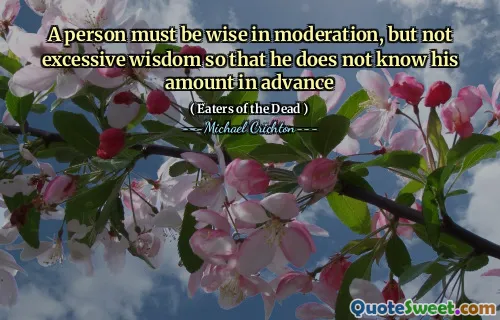
Knowledge is soon changed, then lost in the mist, an echo half-heard.
This quote highlights the fragile and fleeting nature of knowledge and understanding. In a world where information is constantly evolving, the truth we hold onto often becomes distorted or obscured, much like how a memory can fade or shift over time. The imagery of knowledge changing and then vanishing 'in the mist' evokes a sense of uncertainty—things that once seemed clear become obscured by time or misinterpretation. The phrase 'an echo half-heard' suggests that our perception of knowledge is often incomplete or distorted, much like how sound echoes diminish and lose detail long before they reach our ears fully. It emphasizes our human tendency to grasp at understanding, although what we hold often remains just out of reach, either incomplete or merely a shadow of the original. This underscores the importance of preserving and critically examining what we consider knowledge, recognizing its impermanence and susceptibility to distortion. It also serves as a reminder that what is perceived as truth may only be a version influenced by perspective, memory, and context. In a broader sense, this quote encourages humility about our claims to certainty and reminds us that our understanding must be continually questioned and refined. Ultimately, it is a poetic meditation on the ephemeral nature of knowledge in a complex, ever-changing world, urging us to approach understanding with both curiosity and caution.











